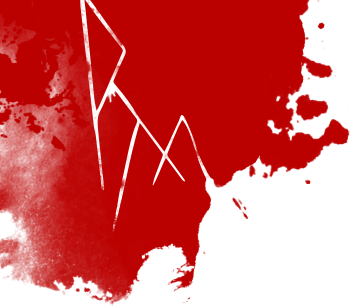Not a normal subject for me, but I threw out some inspired free-verse this morning and I thought I ought to preface it.
For starters: I’m not Catholic, or even religious. That aside, I support most religions, denominations, and sects. Societies the world-over would not be as stable as they are without the spiritual well-being of their populations. Sure, belief systems can be weaponized as methods of control and some of the older religions have had their horrific epochs– hasn’t every mature human institution?
So that’s where I stand. What draws me to the Catholic tradition is the power and the age of the institution. Catholicism has it’s part in every phase of Western history dating back to the Roman Empire. Of course it’s easy to let your imagination spiral towards all the Dan Brown conspiracy possibilities, but what really gets my wheels turning is how relevant the institution is to so many people, across so many cultures, today. People give every aspect of their lives to their Catholic-ness the world over. It wows me when traditions and texts can exist for well over a millennia and still be integral to the faith of a large percentage of the world’s population (the even older Jewish tradition has this affect on my imagination too).
Further escalating the intrigue is how the institution’s power structure ascends to one man. This massive organization functions across every continent with a population, but it’s nucleus is one tiny city– that feels like a single castle– and a small handful of men from all over the world that answer to one, and this has worked (for their means) for all of modern history, plus hundreds of years prior.
And then you have Pope Francis, the spiritual descendant of some of the most powerful, scariest, and inspirational people in history – and God was he lovable.
His appointment seems like a deft move now. Jorge Bergoglio was unique to the position in a great many ways: he came from the Jesuit Order, he came from South America, and he put forth a less traditional discourse. When the world was watching the Holy See with fascination (as they do when these events occur), the ascendancy of Pope Francis gave them someone who felt accessible in a way non-Catholics hadn’t experienced.
It’s pretty striking to see the internet mourn a pope in such a way. Pope Francis reached beyond the Catholic world to speak for all people, all the lambs as it were. When we were used to looking at the Pope as an arbiter of the Catholic faith and a position of power, he stretched out a hand and reminded the modern world of the essence of Christ’s teachings, of the kindness and consideration that permeate the New Testament.
Decades ago, I spent a summer in Rome and escaped into the labyrinthian wonders of the Vatican on many a sweltering afternoon. Statues litter the less-travelled hallways, sculptures that have endured centuries of Popes and Roman wars. There is such an abundance of history in those halls that they seem cast aside while tourists bear their souls to the weight of Borromini and the levity of Bernini and Michelangelo.
And somewhere in this building were the apartments and the rooms where the pope lived and operated, and until yesterday, he was Pope Francis.
That struck me enough to put down some words.
When a pope dies
When a pope dies
the actuators stop the gears
and they stand near
a tempered glass window,
absorbing the sudden
silence.
Steam settles
on the buttresses and
the mechanical arms
and the cooling belly
of the core.
For a moment,
birds leaving the square
could connect
the distant transistors,
in a thought
that leaves
with the expected.
Pistons sit
quiet above an
organ, left to ponder
the hissing ages
in two directions.
Deep
in the unseen chambers,
soot hides the etchings
and dampens the echoes
of the elder's broom.
In the furnace,
an ember jumps
to another stone.

